ERA is an initiative which is working to improve the representation of underrepresented groups, retain diverse talent and create an inclusive environment for all in higher education institutions.
2-week work shadowing placements for students who are not in their final year: provide the opportunity to gain a valuable insight into academic research careers. The placements are like a “try before you buy” experience. You will shadow a research group to understand the day-to-day life of members instrumental to the scientific process, including but not limited to postgraduate students, postdoctoral fellows, laboratory technicians, lab principal investigators, and professors. This will give you the opportunity to observe the different careers on offer in research and to develop a research network. You may also be involved in the group’s research practices (e.g., conducting experiments). You will experience academic activities from grant writing to writing manuscripts (in some instances), and you will work personally with a careers advisor to build your CV.
8-week studentships for final year students: provide the opportunity to gain hands on practical research experience. You will be able to design a project with a supervisor of your choosing and write a research proposal. The work you conduct during this studentship will contribute towards research output e.g., a research paper, conference submission and/or internal presentation. This is an opportunity for you to grow your research interest, gain valuable research experience and cultivate your research network.
The initiative is currently open to students from *underrepresented backgrounds who study at either St George’s or St Mary’s, University of London.
*If you receive a university bursary and/or are registered with the disability service and/or are from an ethnic minority background, you are eligible to apply.
The placements will take place between June – September 2024. If successful, you will agree on a start date with your supervisor.
You will receive a stipend on par with Wellcome Trust Internships (£250 per week). The host laboratory will also be provided with funding to cover the cost of consumables for your project and/or research output. Based on the funding we have received, we will be awarding 1 studentship and 8 work shadowing placements in 2024. Please note that this is a very competitive process.
Complete the e-form below.
You should only apply for one project. If shortlisted, we can discuss if you have any other preferences.
Deadline extended: 08-05-24 at 5PM.
You will be considered primarily on the basis of the application form, not previous academic performance. As we receive a large number of applications, we advise you to dedicate sufficient time and effort to completing your application form. Tips: Read the instructions carefully, look into the project and related literature, review the aims of the ERA programme, and discuss your motivations for applying to the programme.
Applications will be triple marked. The top 10% will be invited for a short informal interview before the final decision is delivered. At interview, you will deliver a 5 minute presentation on ‘Why is this initiative important to you, and how can you apply this experience in the future?’
If you are interested in taking on either a 2-week work shadowing placement or 8 week studentship with a lab host that is not on the project list, please contact them directly regarding this opportunity. Alternatively, if you require more information about a project on the list, please feel free to use the contact function below and/or contact the supervisor directly.
Host university: St George’s University of London
Length and type of placement: 2 week work shadowing placement
Supervisor: Dr Audrey Teh
During this placement, you will be able learn about how we model the events that cause scarring in the lung in the lab and test if new drugs can stop this process. If results look good, then these new drugs may represent a new treatment option for patients to stop lung scarring. This placement will be as hands-on as possible, so you will be able to do some the lab techniques (e.g. ELISA, cell culture, microscopy), which you may have learnt about in your course.

Somto Muoneke

Ruchi Wadhwa

Javeria Nishtar

Sabrin Mohamed

Samia Tajbiha

Lakshmi Pathmanathan
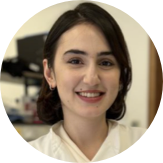
Rahil Isar

Ilyas Moosavi
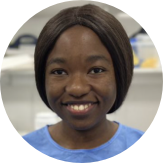
Rutendo Makuve

Giulia Kengne Fotso

Maya Caan
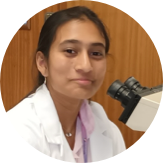
Diyana Anthony
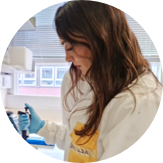
Gresilda Asllani
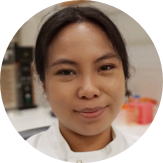
Lien Salcedo
Ektaa is a social enterprise: community interest company: Company number: 13965495
Brand and website by BlowUp